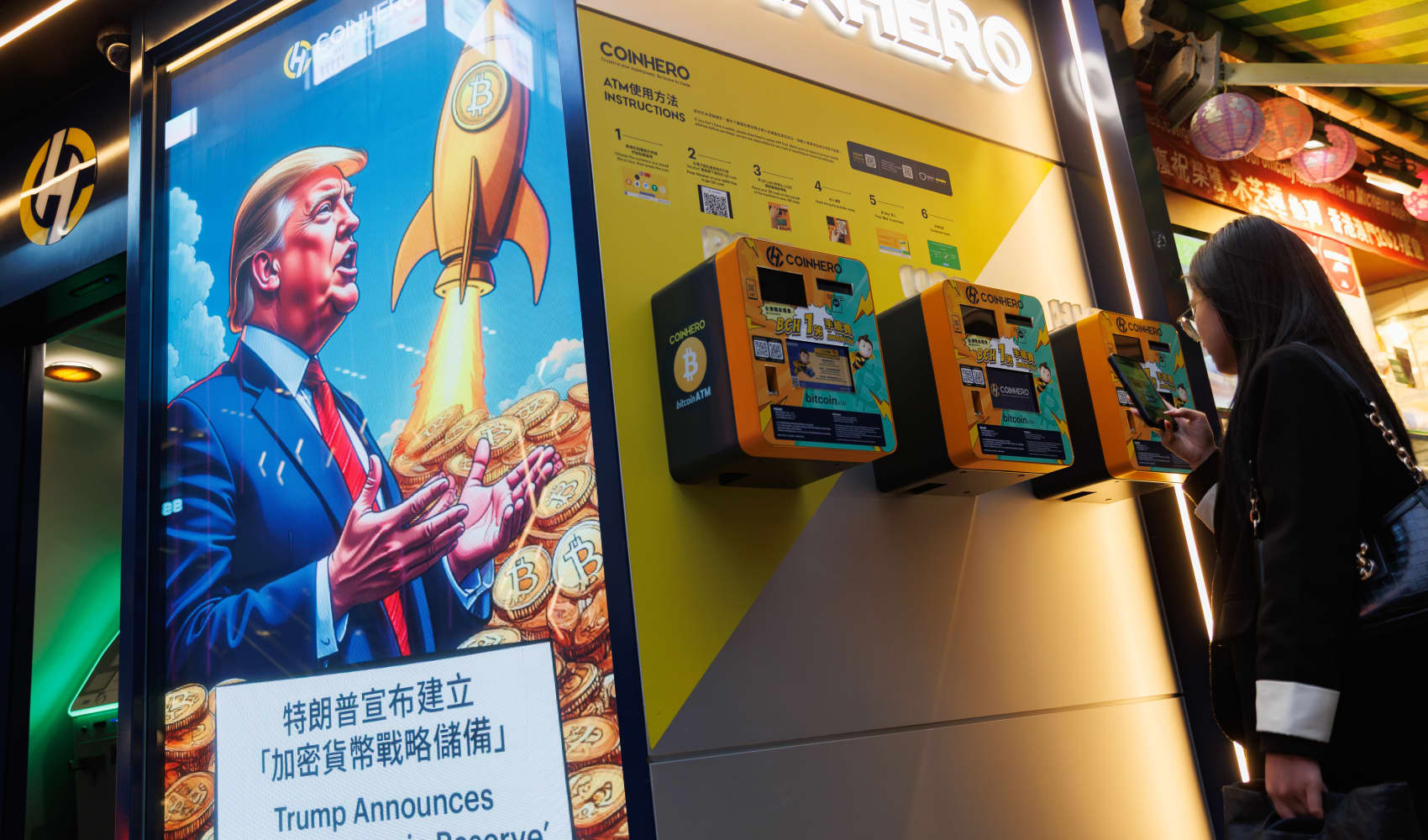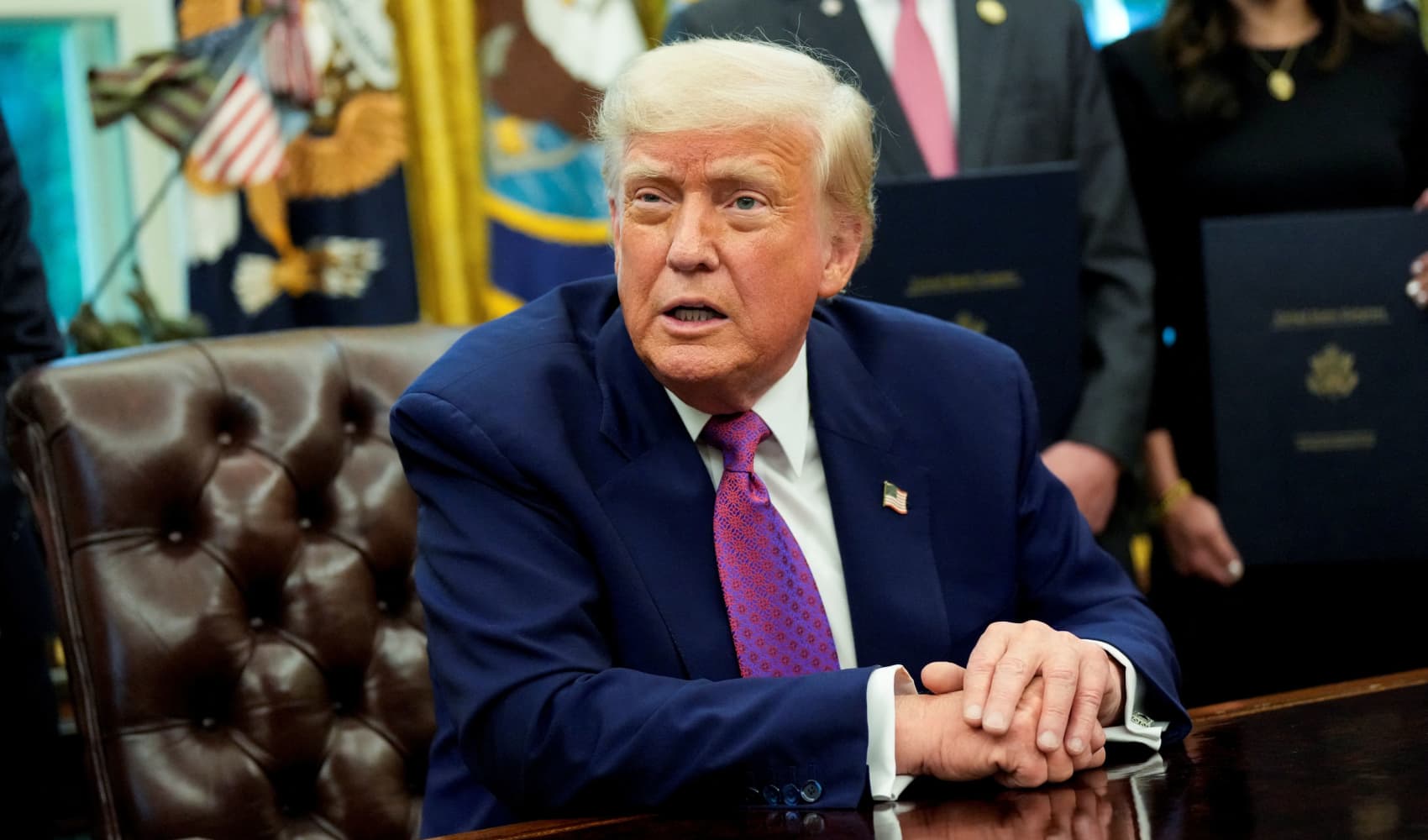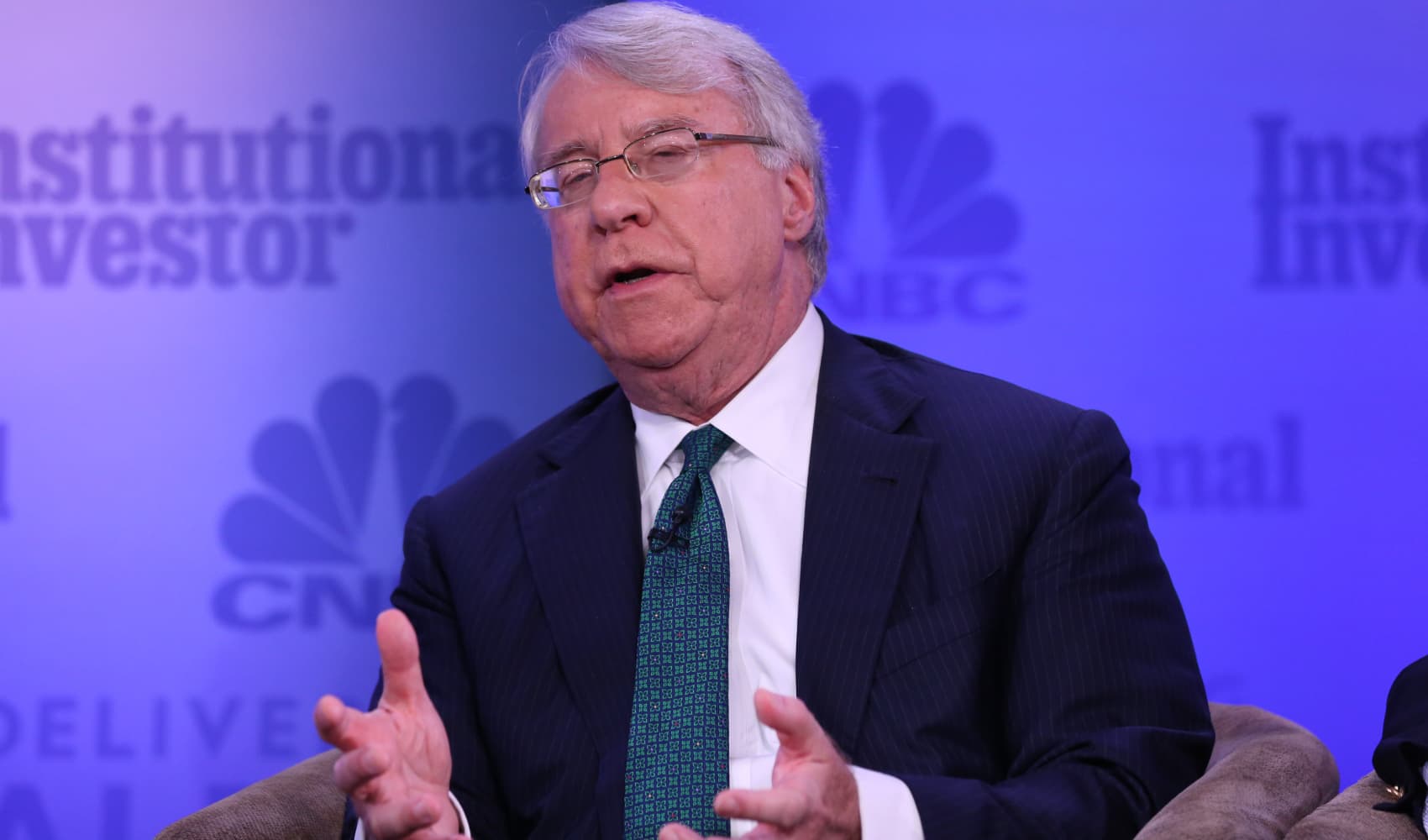Cramer's Lightning Round: Don't Sell Arm! Here's Why
Cramer's Lightning Round: Why He's Yelling "Don't Sell Arm!"
Introduction: Diving into Cramer's Hot Takes
Alright folks, buckle up! It's time to decipher the rapid-fire wisdom of Jim Cramer's "Mad Money" Lightning Round. If you've ever watched the show, you know the drill: callers fire questions, and Cramer blasts back with his stock market opinions in a blink. It's a whirlwind of financial advice, and today, we're dissecting his pronouncements on Arm, Bitcoin, and BHP. So, what did the Oracle of Wall Street have to say, and more importantly, what does it mean for *you*, the everyday investor?
Arm Holdings: Hold On Tight!
The Verdict: "Don't Sell It Here!"
The call came in, the question was asked, and Cramer's answer was crystal clear: "I want you to stay in it... Do not sell it here." Straight to the point, no beating around the bush. But why such conviction about Arm?
Arm's Potential: The Future of Computing
Arm Holdings isn't just any chip designer; they're at the heart of countless devices, from smartphones to servers. Think about it: most of the chips powering your phone are based on Arm's architecture. The company's focus on energy efficiency makes them a crucial player in the ever-growing world of mobile and embedded computing. And with the rise of AI and the Internet of Things (IoT), Arm's technology is only becoming more vital.
Why Now? Understanding the Market Sentiment
So, why is Cramer telling people *not* to sell *right now*? Well, markets are fickle, aren't they? Sometimes, good companies get caught in broader market downturns or face temporary headwinds. Cramer's advice suggests that he believes Arm's long-term prospects outweigh any short-term market noise. He sees value that others might be missing, urging investors to stick to their guns and ride out any potential volatility.
Bitcoin: A Thumbs Up (with a Caveat)
"We Like Bitcoin...We Buy Bitcoin"
Cramer's stance on Bitcoin is generally positive. He's said, "No, no. Look, we like Bitcoin...We want Bitcoin, we buy Bitcoin." This suggests a belief in the long-term potential of cryptocurrency, particularly Bitcoin. But, what does this mean for you?
Bitcoin's Role in a Portfolio: Diversification, Not Domination
While Cramer is bullish on Bitcoin, it's crucial to remember that cryptocurrency is a volatile asset. It's not something you should bet the farm on. Instead, consider it a small, speculative part of a diversified portfolio. Think of it like adding a spicy chili pepper to your dish – a little can add excitement, but too much can ruin the whole thing.
The Importance of Due Diligence: Don't Get Blinded by the Hype
Before diving into Bitcoin (or any cryptocurrency), do your homework. Understand the risks involved. Learn about blockchain technology. And, most importantly, never invest more than you can afford to lose. Just because Cramer likes Bitcoin doesn't mean it's a guaranteed win. Remember, past performance is no guarantee of future results!
BHP: A Solid Situation?
Cramer's Take: "I Like BHP"
When asked about BHP, Cramer simply stated, "I like BHP...I think you got a good situation going there." This is a much more straightforward endorsement. But what makes BHP a "good situation"?
BHP: A Global Mining Giant
BHP is one of the world's largest mining companies, involved in the extraction of essential commodities like iron ore, copper, and coal. These are the building blocks of modern infrastructure and manufacturing. As the world continues to develop, the demand for these resources is likely to remain strong.
The Commodity Cycle: Understanding BHP's Potential
Commodity prices are cyclical. They go up and down based on supply and demand. Cramer's positive outlook on BHP suggests he believes the company is well-positioned to benefit from current or future trends in commodity markets. Perhaps he anticipates increased demand from infrastructure projects or a shortage in supply due to geopolitical events.
Decoding the Lightning Round: More Than Just Sound Bites
The Speed and the Substance
The Lightning Round is known for its quick answers, but there's often more to it than meets the eye. Cramer's responses, while brief, are based on his extensive knowledge of the market and his deep understanding of individual companies.
Reading Between the Lines: What Cramer Doesn't Say
Sometimes, what Cramer doesn't say is just as important as what he does say. A lukewarm response or a hesitant endorsement could be a red flag, signaling that he's not entirely convinced about a particular stock. Conversely, an enthusiastic and emphatic answer, like his "Don't sell Arm!" remark, suggests a strong conviction in the company's prospects.
Jim Cramer's Investing Guide: Your Free Resource
Speaking of valuable information, CNBC offers a free guide to investing from Jim Cramer! This is a fantastic resource for both beginners and experienced investors alike. It covers essential topics like building a portfolio, managing risk, and identifying promising investment opportunities.
CNBC Investing Club: Following Cramer's Every Move
Transparency and Insights
Want to know exactly what stocks Jim Cramer is buying and selling? Consider joining the CNBC Investing Club. This exclusive membership gives you access to Cramer's portfolio, insights into his investment decisions, and opportunities to learn from his expertise. Think of it as having a seasoned investor as your personal mentor!
The Importance of Doing Your Own Research
While Cramer's advice can be valuable, it's crucial to remember that it's just one piece of the puzzle. Never blindly follow anyone's recommendations without doing your own research. Understand the companies you're investing in, analyze their financials, and assess the risks involved. Your financial future is in your hands, so take ownership of your investment decisions.
Disclaimer: Proceed with Caution
Remember, past performance is not indicative of future results. Investing in the stock market involves risk, and you could lose money. Cramer's opinions are just that – opinions. Always consult with a qualified financial advisor before making any investment decisions.
Questions for Cramer? How to Reach Out
Got a burning question for Jim Cramer? You can call him at 1-800-743-CNBC during the "Mad Money" show. Who knows, maybe your question will be featured on the Lightning Round!
Staying Informed: Beyond the Lightning Round
The Lightning Round is a fun and engaging way to get quick insights on stocks, but it's just one source of information. To be a successful investor, you need to stay informed about market trends, economic news, and company-specific developments. Read financial publications, listen to podcasts, and follow reputable financial analysts on social media. Knowledge is power, especially when it comes to investing.
Building a Long-Term Investment Strategy
Don't get caught up in the day-to-day noise of the market. Focus on building a long-term investment strategy that aligns with your financial goals and risk tolerance. Diversify your portfolio, invest in quality companies, and stay disciplined. Think of investing as a marathon, not a sprint. Patience and perseverance are key to achieving your financial objectives.
Reacting to Market Volatility: Staying Calm Under Pressure
The stock market can be a rollercoaster. There will be ups and downs, periods of exuberance and periods of fear. The key is to stay calm and avoid making emotional decisions. Don't panic sell during market downturns, and don't get overly greedy during bull markets. Remember your long-term strategy and stick to it. As Warren Buffett famously said, "Be fearful when others are greedy, and greedy when others are fearful."
Analyzing Arm: A Deeper Dive into the Chipmaker
The Competitive Landscape
Arm operates in a highly competitive industry. Companies like Intel and AMD are also major players in the chip design market. Understanding the competitive landscape is crucial for assessing Arm's long-term prospects. Consider factors like market share, technological innovation, and pricing power.
Financial Performance: A Look at the Numbers
Before investing in Arm (or any company), analyze its financial performance. Look at key metrics like revenue growth, profitability, and debt levels. Are the numbers trending in the right direction? Does the company have a strong balance sheet? These are important questions to answer before making an investment decision.
Conclusion: Cramer's Quick Takes and Your Investing Journey
Key Takeaways from Cramer's Lightning Round
So, what have we learned from Cramer's rapid-fire advice? First, he's a believer in Arm's long-term potential and urges investors not to sell prematurely. Second, he's generally positive on Bitcoin but emphasizes the importance of due diligence and diversification. And third, he sees BHP as a "good situation," likely due to its position as a global mining giant. However, remember that Cramer's opinions are just one piece of the puzzle. Do your own research, build a diversified portfolio, and stay disciplined to achieve your financial goals.
Frequently Asked Questions (FAQs)
- Why does Jim Cramer give such quick answers in the Lightning Round?
The Lightning Round is designed for rapid-fire questions and answers to cover as many stocks as possible in a short amount of time. It's about providing quick insights, not in-depth analysis. - Is Jim Cramer always right about his stock picks?
No one is always right about stock picks, including Jim Cramer. Market conditions can change rapidly, and unforeseen events can impact stock prices. His advice should be considered alongside your own research and due diligence. - How much of my portfolio should I allocate to Bitcoin?
Given Bitcoin's volatility, it's generally recommended to allocate a small percentage of your portfolio to it, typically no more than 5%. Consult a financial advisor to determine the appropriate allocation for your individual circumstances. - What are the biggest risks associated with investing in a mining company like BHP?
Mining companies are subject to various risks, including commodity price fluctuations, geopolitical instability, environmental regulations, and operational challenges. - Where can I find more information about Arm Holdings' business and financials?
You can find information about Arm Holdings on their investor relations website, in financial news articles, and through company reports filed with regulatory agencies like the SEC.








